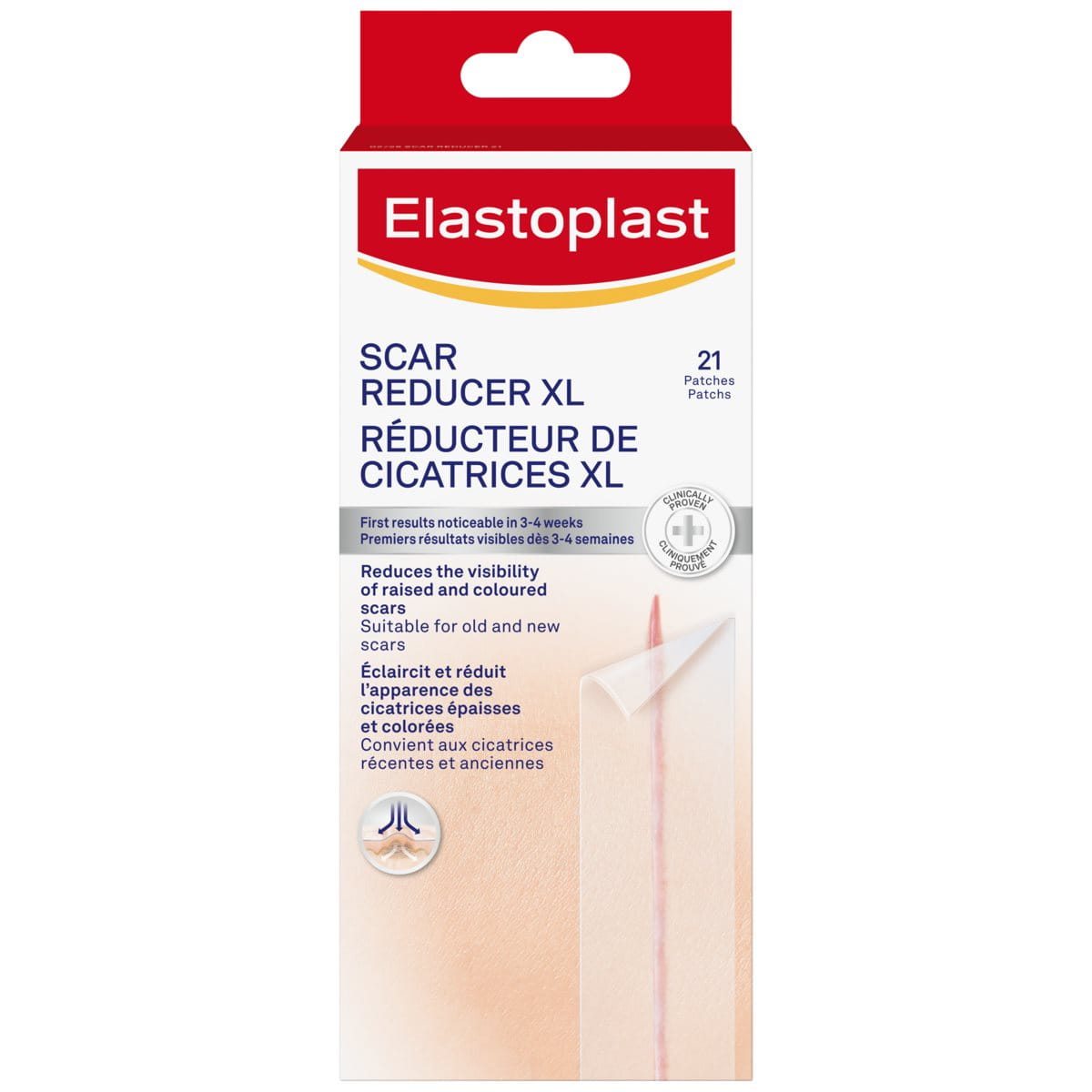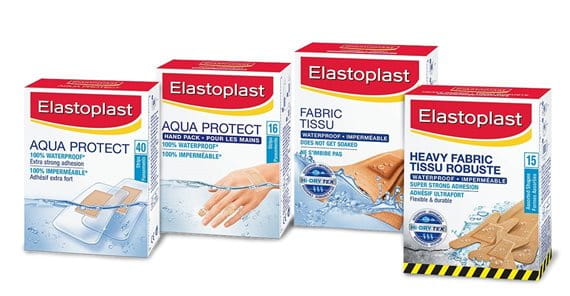About
When talking about faster wound healing, we need to separate fact from fiction. The truth is, even though people might associate salt water with healing, moisture can quickly cause the skin to swell around wounds and complicate the healing process. This not only affects the healing process, but can also allow bacteria to enter the wound, thereby increasing the risk of infection. Each type of water has its own particular kind of risk. Reading Better protection for better healing will tell you how to protect your wounds from water. But first, here are the types of water most people are most frequently exposed to and the dangers they present for wounds.
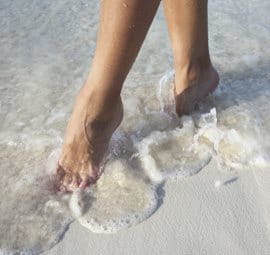
Saltwater
Most people have probably heard that seawater helps the wound healing process – but this is a myth! In reality, impurities in the water in coastal areas and in standing bodies of water can contain high concentrations of germs that proliferate freely at warm temperatures.
THE RISK OF WOUND INFECTION IS INCREASED BY CONTACT WITH CONTAMINATED WATER
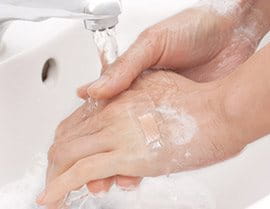
Tap water
Especially when a wound is just beginning to heal, it is advisable to protect the wound from direct contact with tap water. Water and moisture cause the skin to swell and this can impair wound healing. Hand soap, shampoo, shower gel and detergent can also irritate the wound. Before showering, bathing or washing your hands, it is important to make sure your wounds are covered with a waterproof adhesive bandage so that they are protected and can heal properly.
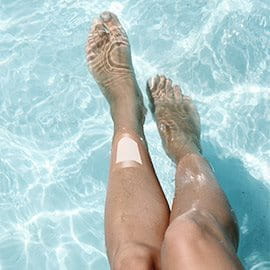
Chlorinated water
Chlorine in water can cause unnecessary irritation in wounds and slow healing. There are also many invisible dangers at public swimming pools, such as the bacteria that loom in unsanitary pools that can quickly lead to wounds becoming infected. It is important to take special care to securely protect wounds from chlorinated water, especially at popular swimming pools.
To ensure optimal protection against water, consider the 100% waterproof adhesive bandages from Elastoplast Aqua Protect.
